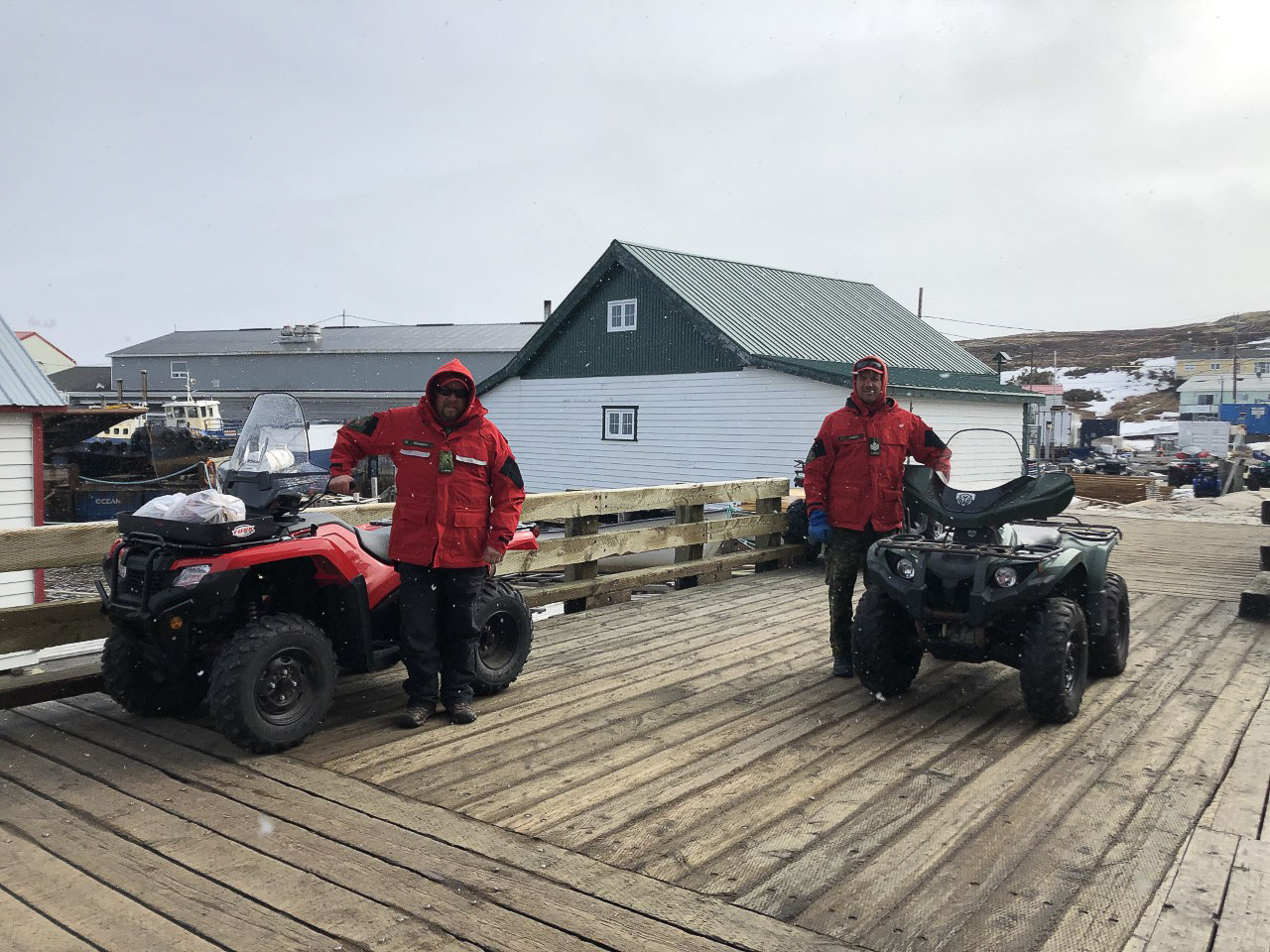The Canadian Rangers' response to COVID-19
September 28, 2020 - Defence Stories
On August 18, 2020, the Office of Strategic Partner Engagement (OSPE) organized a virtual roundtable discussion between three members of the 2nd Canadian Ranger Patrol Group (2 CRPG) and two professors specializing in safety, security and sovereignty issues in the Polar Regions. The spread of COVID-19 in remote and isolated communities has been a concern for academics, civil and government authorities since the beginning of the pandemic’s announcement, and the threat of the 2nd wave only accentuates this concern.
The discussion was planned to allow the Canadian Rangers to share their experience in the field. "They are part of a reserve unit responsible for maintaining a military presence in the least populated regions of Canada," explained Captain Julie Pagé. In doing so, the intention behind the organization of the virtual round table was to provide a concrete illustration of the initiatives included in the COVID-19 awareness program, but participants quickly addressed the indirect contribution of Canadian Ranger patrols to strengthening the human security of Quebec’s Arctic communities. This tangent increased the interest of the two researchers who have written extensively on the historical and contemporary role of the Canadian Armed Forces in the North, search and rescue and emergency management in the region, Canada-U.S. relations, and the evolution of international law in the Arctic and Antarctic.

Caption
Canadian Rangers from the Harrington Harbour patrol (Ranger Wayne Foreman on the left and Ranger Sergeant Darrell Ransom on the right) conduct screening in front of the grocery store so that no more than five people enter at a time.
Photo: Ranger from 2 Canadian Ranger Patrol Group.
The pandemic represents a new challenge for the Canadian Rangers, as Master Corporal Rowena Osborne and Corporal Merlin Osborne have learned from sharing a portion of their daily life in the current pandemic environment. Rangers are military reservists whose work includes domestic operations such as search and rescue, as well as fighting forest fires and floods. Today, they are faced with an invisible enemy that could manifest itself at any time.
"When we received the Personal Protective Equipment, we performed a variety of tasks ranging from raising awareness of well-being in the community, identifying individuals and families at risk, to assisting local civilian authorities," explained MCpl Osborne.
"Obviously, we are afraid of COVID-19. If the virus were to enter the communities, it could have a huge impact.” Cpl Osborne added that "even if we don’t have a case in our community, we are reminding everyone that they should practice physical distancing and stay home as much as possible to be prepared for any eventuality," he explained. “Rangers are highly respected in the community and we try to help our people in any way we can.”
When public authorities needed a hand in preparing their response to the pandemic, they turned to the Rangers. The reason is simple, they are people who are already on the ground and they know the environment inside out. "I know that some members of the community are very worried. They want to make sure that they are supported the way they are in the South," says Capt Pagé. "I believe that with our Rangers on the ground, we can help reduce the level of anxiety and reassure people. The Rangers are well suited to the task because most of them come from the communities they serve and they care about the well-being of their community.”
Since the beginning of April, the northern communities have been barricaded. "It’s certainly trying," says MCpl Osborne. "No one was really prepared for this, especially not on this scale… It’s unlike anything I’ve ever done before, but we’re extremely proud of the work we’ve done and we’ll continue to be there for the well-being of our communities.”
The researchers were excited by this exchange as it illustrated the relational dynamics that exist within Canadian Ranger patrols. They operate on the basis of, among other things, balanced relationships that are respectful of the local and unique culture of each community. It is this relationship and balance that enables the enhancement of human security in Arctic communities. In their view, this strengthening is the result of the relationship dynamics and support provided by Arctic communities to these patrols. The Canadian government, through the Canadian Ranger patrols and the Junior Canadian Ranger Regions Youth Program, is thus directly contributing to strengthening the human security of its Arctic communities.
Ultimately, the Canadian Rangers proudly represent the Canadian Armed Forces and carry out the various tasks assigned to them with pride and diligence. Let’s work together to make our unsung heroes known.